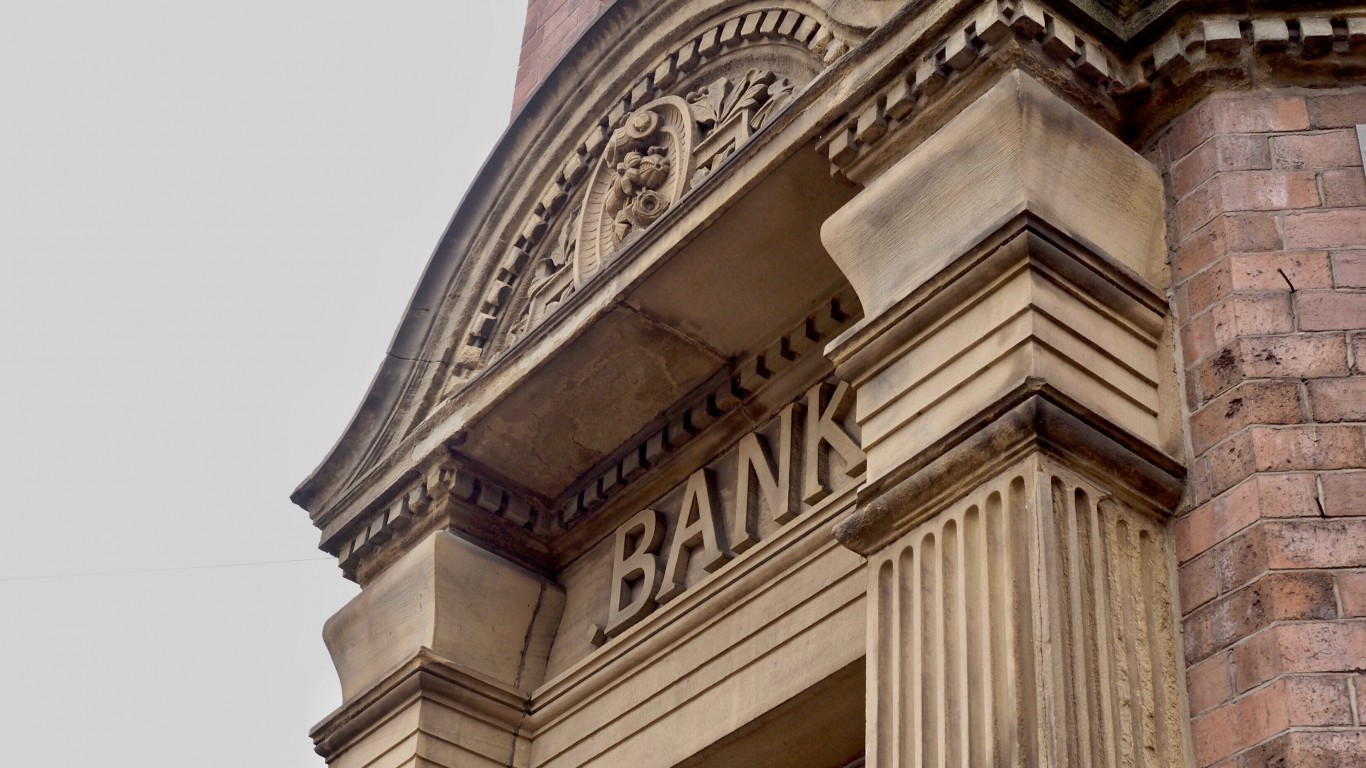Investing
Fed Considers New Rules for Midsize Banks After SVB Collapsed With 90% Deposits Uninsured

Published:

The Federal Reserve is considering introducing stricter capital and liquidity requirements for midsize banks following the stunning collapse of Silicon Valley Bank (SVB) and Signature Bank. The move comes as both banks had an extremely high number of uninsured accounts when they failed.
Both Silicon Valley Bank and Signature Bank had the highest ratio of uninsured deposits across the entire industry. According to S&P Global Market Intelligence data, SVB ranked second among banks with 93.3% of uninsured deposits, while Signature Bank ranked fourth with 89.7% of deposits being uninsured at the end of 2022.
Bank of New York Mellon, State Street Corp., and Northern Trust Corporation are the only three other banks with estimated uninsured deposit rates above 80%. However, these banks still had much lower ratios of total loans plus held-to-maturity, or HTM, securities to total deposits compared to that SVB and Signature, which stood at 94.4% and 93.3%, respectively.
Investors started to voice concern about the banks’ held-for-maturity portfolios after the Fed began raising benchmark interest rates. They had longer-dated bonds that started losing value as the central bank pushed higher rates.
That scenario ostensibly played out after SVB was forced to sell a $21 billion bond portfolio at a $1.8 billion loss. The bank suffered a run after the news. According to a filing by California’s Department of Financial Protection and Innovation, depositors initiated $42 billion in withdrawals, pushing the bank into a negative cash balance of almost $1 billion.
Silicon Valley Bank and Signature Bank also lobbied the government to relax some Dodd-Frank provisions implemented in response to the financial crisis. The duo aggressively supported the Economic Growth, Regulatory Relief, and Consumer Protection Act, which exempted them from stringent stress testing and capital requirements in the Dodd-Frank Act.
The bipartisan bill, signed by President Trump in 2018, argued that banks with $250 billion or less in assets were not “systemically important,” increasing the previous $50 billion threshold by fivefold. “We fought hard, but the big banks and their lobbyists won this round,” Warren tweeted after the Senate vote.
It is worth noting that when US regulators shuttered Signature Bank on Sunday, they cited “systematic risk.” Lawmakers also announced a set of emergency measures to avert a banking crisis and restore confidence in the banking system.
The Federal Reserve is reconsidering some of its rules related to midsize banks following the recent saga around SVB and Signature. Specifically, the central bank is reviewing a slew of stricter capital and liquidity requirements and steps to ramp up annual “stress tests” that assess banks’ ability to stay buoyant, the WSJ reported, citing a person familiar with the matter.
The report said the new rules could target banks with between $100 billion to $250 billion in assets, which are currently exempted from some stringent requirements. There are about two dozen banks within the range, including Fifth Third Bancorp and Regions Financial Corp.
Shortly, the central bank also plans to introduce new measures that could require more banks to show unrealized gains and losses on some securities. This would impact the banks’ regulatory capital ratios, which is the amount of capital a bank or other financial institution has to hold as required by its financial regulator.
“Regulators also are preparing to adjust the scope of a plan to add to regional banks’ financial cushions that could be called on in times of crisis,” the report said, adding that regulators might require mid-size banks to raise long-term debt that can help absorb losses in case of their insolvency.
This article originally appeared on The Tokenist
Retirement planning doesn’t have to feel overwhelming. The key is finding expert guidance—and SmartAsset’s made it easier than ever for you to connect with a vetted financial advisor.
Here’s how it works:
Why wait? Start building the retirement you’ve always dreamed of. Click here to get started today!
Thank you for reading! Have some feedback for us?
Contact the 24/7 Wall St. editorial team.